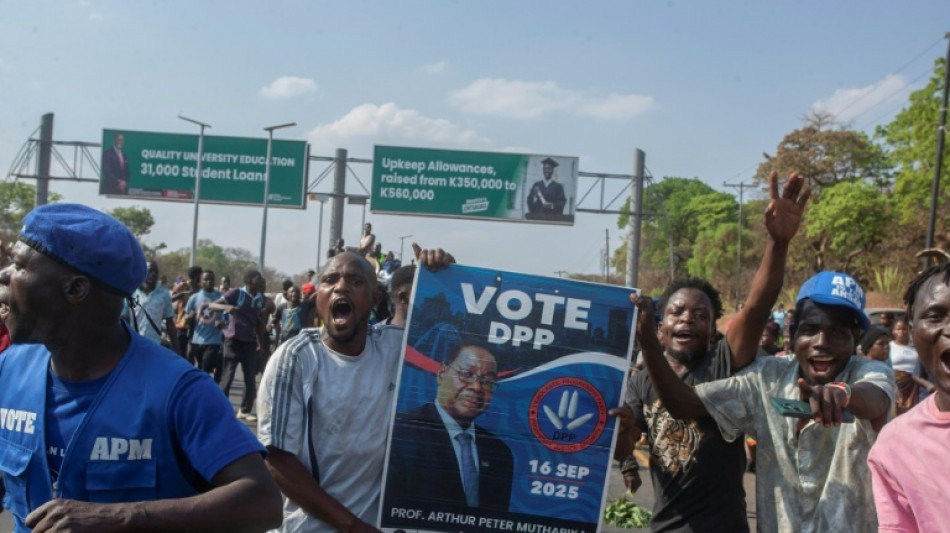Malawi's ex-president Peter Mutharika was re-elected to head the impoverished southern African country with nearly 57 percent of votes, the election authority announced Wednesday, following polls dominated by soaring living costs.
President Lazarus Chakwera came second with 33 percent of ballots in the September 16 vote, the electoral commission said, hours after the incumbent had conceded defeat admitting his rival had an "insurmountable lead".
Supporters of Mutharika, 85, and his Democratic Progressive Party (DPP) took to the streets in celebration after Chakwera acknowledged in an address to the nation earlier Wednesday that he had lost his bid for a second term.
Mutharika, president between 2014 and 2020, campaigned on pledges of a "return to proven leadership" that criticised Chakwera's handling of the battered economy during his term, when Malawi also suffered drought and cyclones.
"A moment ago, I called Professor Mutharika directly to congratulate him on his historic victory and to wish him well," Chakwera said.
Even ahead of the official announcement of results, "it was clear that my main rival Peter Mutharika had already secured an insurmountable lead over me," said Chakwera, 70, a former pastor who heads the Malawi Congress Party (MCP).
The charismatic Chakwera came to power in the 2020 polls that ended the first term of Mutharika, a reserved constitutional law expert who spent decades out of Malawi including working as law professor in Washington.
Costs soared in the agriculture-dependent nation under his watch, with inflation reaching 33 percent and the prices of the staple food, maize, and of fertiliser skyrocketing.
He also failed to deliver on promises to create a million jobs and tackle corruption in the nation of 21 million people, more than 70 percent of whom live in poverty, according to the World Bank's benchmark.
Almost as soon as results started coming in from polling stations last week, unofficial tallies carried by local media showed Mutharika, known by his supporters as "father", had a strong lead.
Among the hundreds of party supporters who celebrated Mutharika's comeback in the capital Lilongwe, Mary Duncan said: "We hope that 'father' will bring food security and the price of fertiliser price will go down and civil servant salaries will improve."
The MCP, Malawi's oldest political party, claimed to have evidence of irregularities in the vote, including tallies that did not match and alleged ballot stuffing. Chakwera urged the High Court Tuesday to compel the Malawi Electoral Commission to delay the results, but the bid was rejected.
"The anomalies do not necessarily mean that the election result projecting Professor Mutharika as the winner is not credible or a reflection of the will of the people," he said in his address.
- State of the economy -
Mutharika has to be sworn into office between seven and 30 days of the announcement of his victory.
Voters who backed Mutharika were swayed by the relatively better state of the economy during his 2014-2020 term, analysts said, when he had assembled a strong economic team and brought inflation down to single digits, even though his tenure was also marred by allegations of corruption, food shortages and growing national debt.
During campaigning, he pledged economic growth and an end to a foreign exchange shortage that has restricted imports of fuel and fertiliser, saying: "I want to rescue this country."
"Malawians are longing for a better past," said Mavuto Bamusi, political analyst with the Malawi Political Science Association.
Chakwera "was a very good leader of the opposition and I think the expectation was that was going to translate into a very good and effective president," political science professor Boniface Dulani told AFP.
"But unfortunately, if you look at the economy, it's tanked. A lot of the things that they promised to do, they failed to do," he said.
K.Smeets--LCdB
